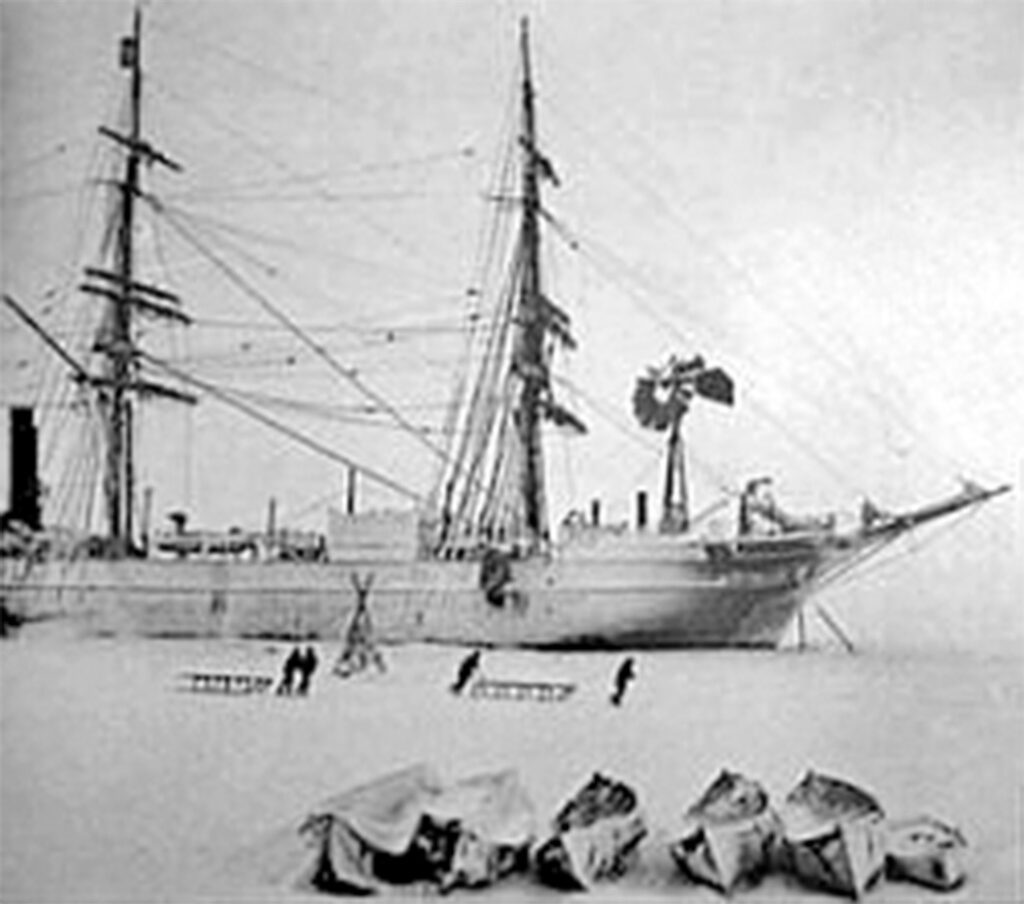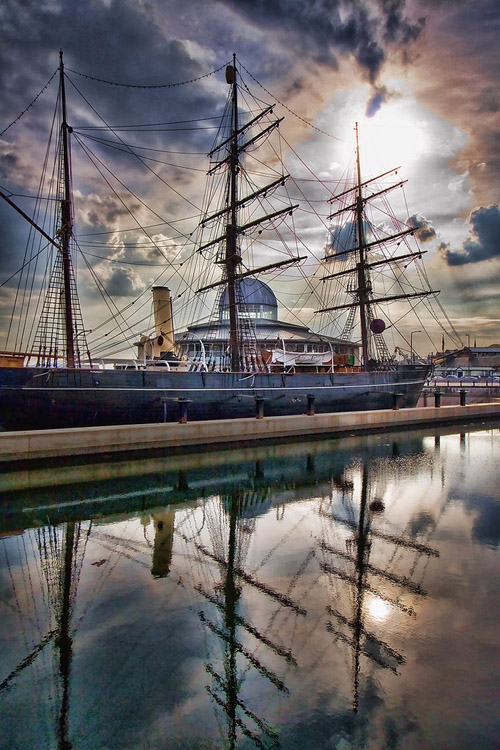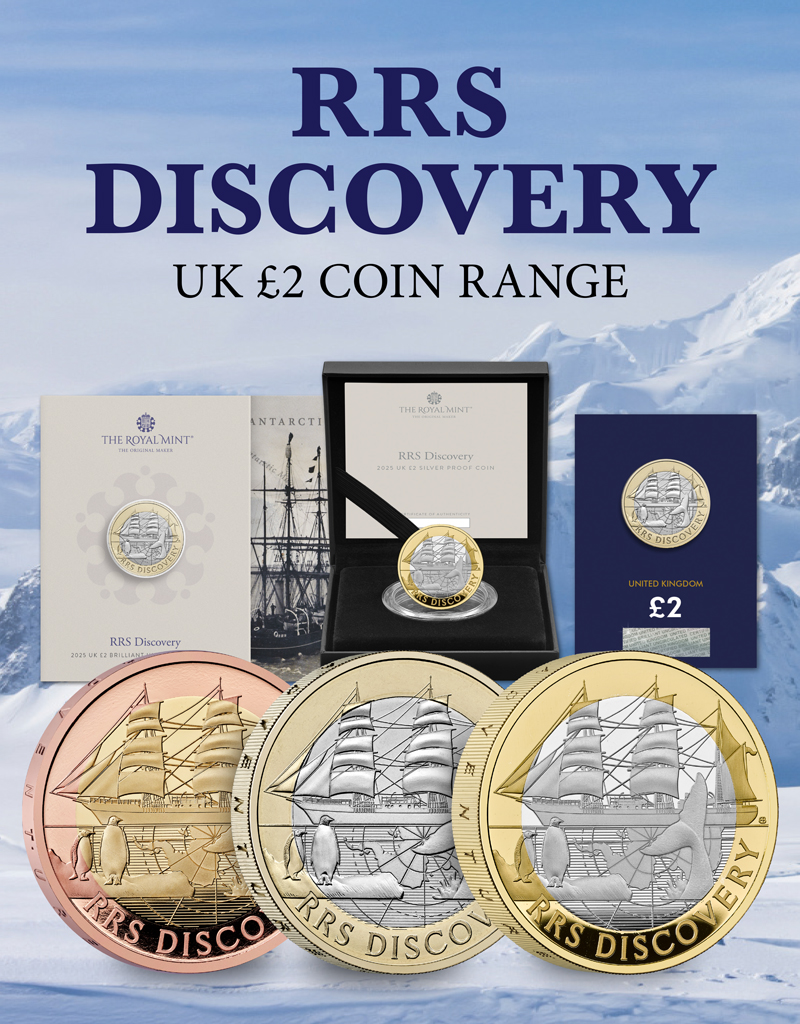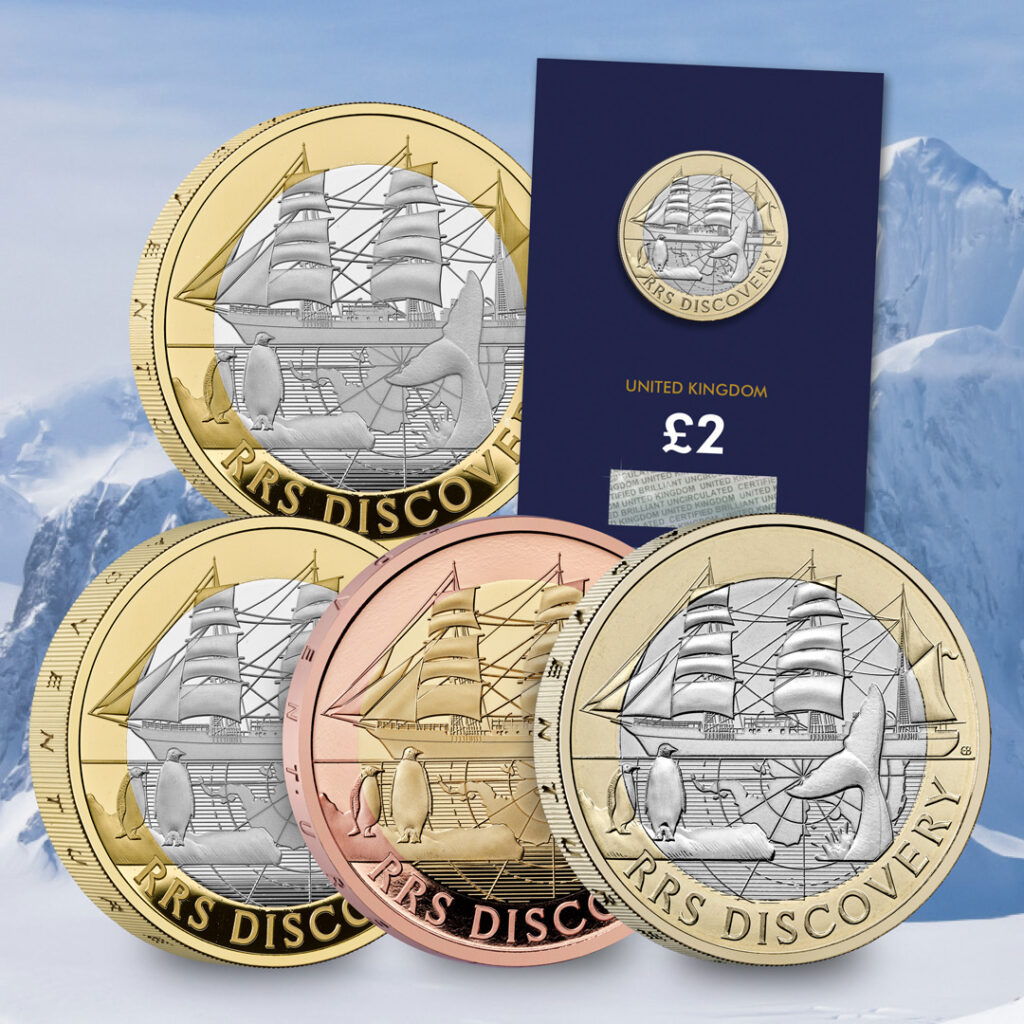RRS Discovery: From Antarctic Exploration to UK £2 Coin
A Ship That Made History
The Royal Mint has today released a brand-new commemorative coin celebrating the 125th anniversary of RRS Discovery’s launch and the centenary of the Discovery Oceanographic Expedition. For collectors, this coin is more than just a piece of precious metal — it’s a direct link to one of Britain’s most iconic ships and the heroic age of Antarctic exploration.
Built in Dundee in 1901, the RRS Discovery was the UK’s last traditional wooden three-masted ship, designed for one mission: to explore the frozen south. Under the command of Captain Robert Falcon Scott — with a young Ernest Shackleton among the crew — Discovery led the pioneering British National Antarctic Expedition (1901–1904).
The voyage wasn’t just about reaching further south than anyone before; it was about science. Discovery carried researchers who documented Antarctica’s geology, climate, and wildlife, laying the groundwork for future studies. This combination of daring exploration and scientific curiosity made her one of the most significant ships of her age.
A Unique Design Built for Ice
Unlike typical wooden vessels of her time, Discovery was engineered to survive Antarctica’s crushing ice. She had an unusually strong oak hull, extra-thick planking, and innovative features like a lifting propeller and detachable rudder, preventing damage when trapped in pack ice. Even her funnel was hinged, so it could be folded flat to reduce the risk of damage in gales.

These innovations helped Discovery endure the freezing conditions — though she famously spent two years locked in ice before finally being freed.
Penguins and Pioneering Science
One of Discovery’s most charming legacies lies with the emperor penguin. The expedition was among the first to study these remarkable birds in detail, collecting one of the earliest penguin eggs ever taken for science. They recorded notes on behaviour, physiology, and survival in extreme cold — observations that fascinated scientists back home and remain part of penguin biology’s foundation today.
Did You Know?
Emperor penguins can stand over a metre tall and weigh up to 40kg. Discovery’s crew marvelled at their stoic endurance in brutal Antarctic winds, watching colonies huddle together for warmth — behaviour that wouldn’t be properly studied until decades later.
Beyond Antarctica
Discovery’s story didn’t end with Scott’s expedition. Over the decades she:
- Served as a cargo vessel.
- Returned as the first official Royal Research Ship, conducting oceanographic surveys.
- Acted as a naval headquarters during WWII.
- Was nearly scrapped, before being saved and restored.
Today, she proudly rests in Dundee as a museum ship, celebrated as a national treasure.

The Royal Mint’s 2025 Commemorative Coin
Now, more than a century later, Discovery’s spirit of adventure has been immortalised on a newly released Royal Mint commemorative coin. Designed by the acclaimed artist Gary Breeze, the coin captures the ship under full sail, evoking both the grandeur of her voyages and her enduring legacy of exploration. Collectors can choose from a brilliant uncirculated edition for everyday affordability, or the more prestigious silver and gold proof editions, each struck to the highest standards of craftsmanship. With its blend of history, artistry, and rarity, this release offers something to suit every level of collector – from those just starting out to seasoned numismatists looking for a centrepiece steeped in meaning.
From Antarctic seas to the UK’s coinage, RRS Discovery’s story continues to inspire. With today’s coin release, collectors can now own a piece of history that bridges exploration, science, and artistry.
Just like Discovery herself, this coin is built to stand the test of time.



